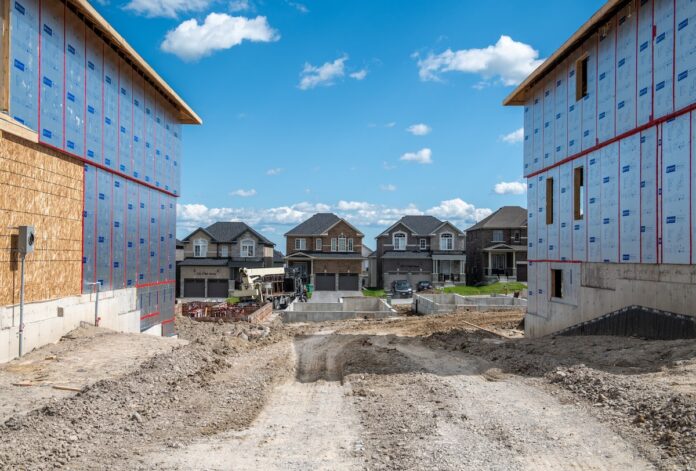“Canada’s housing market is in crisis. Homeownership, once a symbol of middle-class success, is now out of reach for many Canadians across the country. From Toronto to Vancouver and everywhere in between, the dream of owning a home is fading fast. The Royal Bank of Canada estimates that over half of new households expected by 2030 will not be able to afford a home, and those shut out of homeownership face skyrocketing rental costs and near-zero vacancy rates.
The Political Battleground
As the housing crisis escalates, politicians are scrambling to find solutions. Efforts to build more homes are hindered by rising construction costs, limited access to capital, and zoning restrictions. But the underlying problems run deeper than policy roadblocks – they stem from decades of poor planning and short-sighted decisions.
Families Squeezed Out
In Ontario, towns like Peterborough are outpacing major cities like Toronto in creating family-sized homes. Toronto’s housing market is dominated by high-rise condos, leaving little room for larger units. High land costs, restrictive zoning, and other factors push developers away from building family-friendly housing options.
Nimbyism Run Amok
In Vancouver, housing troubles date back decades. Projects are stalled, approvals delayed, and housing shortages worsen. Zoning rules and NIMBYism hinder efforts to create more affordable housing options. The city’s failure to address these issues highlights deeper systemic failures.
A Failure to Plan
The University of Guelph’s housing crisis is a microcosm of the larger issues plaguing the country. Rapid enrollment growth without adequate housing leads to student overcrowding and panic. Shortfalls in planning and funding contribute to a nationwide housing crisis that shows no signs of abating.
The Vacancy Void
Cities like Red Deer, Alberta, exemplify the rental crisis spreading beyond urban centers. Surging demand and limited supply drive up rents, leaving tenants struggling to find affordable housing. Without significant investment in housing construction, renters will continue to face steep costs.
Land Isn’t the Problem
Toronto’s stalled development projects, like the infamous Giraffe Condominiums, highlight the challenges in the city’s residential construction process. Regulatory hurdles, ownership changes, and market forces contribute to vacant properties and missed opportunities for much-needed housing.
The housing crisis in Canada is complex and multifaceted. Addressing affordability, access, and sustainability will require a concerted effort from policymakers, developers, and communities. As the battle for affordable housing rages on, the need for innovative solutions and collaborative action becomes increasingly urgent. The future of Canada’s housing market hangs in the balance, and the time to act is now.”
Reference













